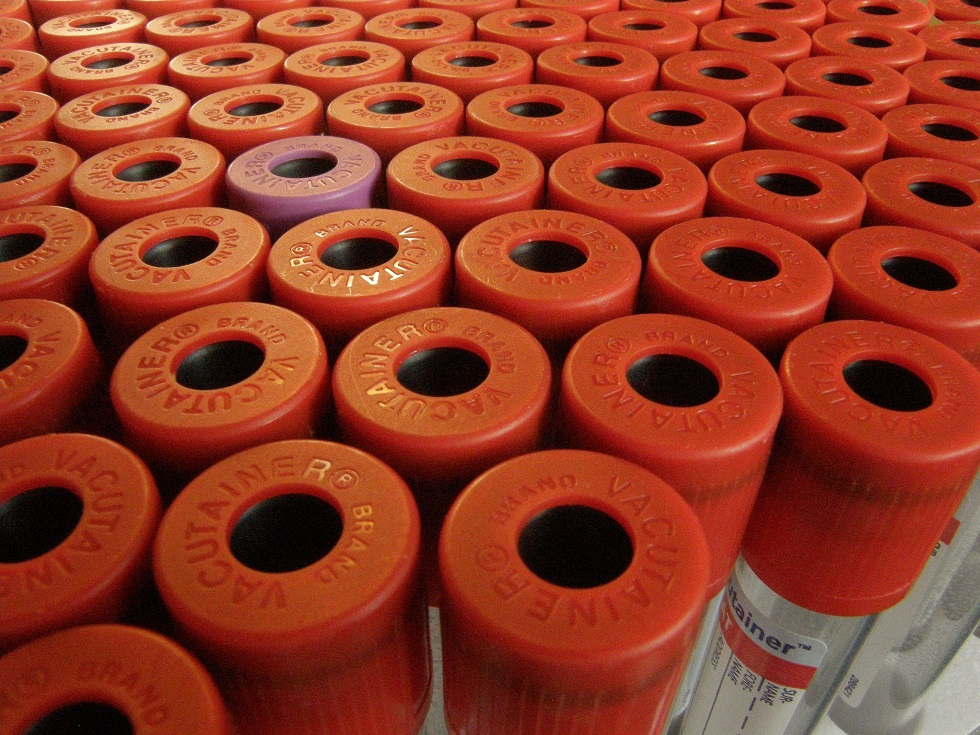Species: All
Specimen: 1 ml serum
Container: Plain (red top) tube. Do not use gel serum separator tubes.
Collection protocol: Standard venepuncture
Special handling/shipping requirements:
Samples should be transported to the laboratory within 12-24 hrs. Ruminant progesterone is unstable in clotted blood. Concentrations fall significantly within two hours at 17°C. In ruminants avoid the use of gel tubes and separate serum within two hours of collection.
General information about the disease: N/A
Serum progesterone for timing of mating in the bitch:
There is variability between bitches in the time at which ovulation occurs during oestrus. Vaginal cytology, the traditional test for determining the best time to mate has its limitations as it can only place bitches into broad categories of proestrus, oestrus, dioestrus and anoestrus. It cannot detect ovulation time per se.
In the bitch, serum progesterone is low during anoestrus and proestrus, begins to rise in late proestrus, increases rapidly around ovulation to reach high levels at the beginning of dioestrus. Determining serum progesterone concentrations periodically from mid proestrus and timing mating according to results has proven very useful in bitches with reduced fertility or irregular cycles, when AI is being used and where bitches have to be taken some distance to the dog. In bitches with a history of infertility or irregular cycles, or where the owner is not familiar with the bitch’s cycle, collect a serum sample (red top tube) at the first indication of bleeding. Alternatively, collect the first serum sample within 1-2 days of detecting >60% cornified cells on vaginal cytology. Ideally the first sample has a serum progesterone concentration of <3 ng/ml. Progesterone concentrations should then be assessed every day or every other day to determine the best time for mating.
Serum progesterone for estimating day of parturition in the bitch:
Variability in the timing of ovulation, length of oestrus and multiple breeding dates make it difficult to predict an exact due date for the litter. The duration of pregnancy has always been regarded as 63-65 days from the first mating. However, a range of 58-68 days from the first mating is more likely to be correct. There are a variety of methods available to try and get a more precise whelping date. The whelping date is likely to be 57 ± 1 days from the first day of dioestrus as determined by vaginal cytology, 63 ± 1 days from the day of ovulation and 65 ± 1 days from the LH surge as assessed by the rise in progesterone above 3 ng/mL. Progesterone concentrations fall in bitches close to parturition. Measuring progesterone in serum within 1 – 2 days of the expected parturition date can help pinpoint time of parturition.
Plasma progesterone concentrations typically fall below 2 ng/mL approximately 18 – 30 hours before parturition.
Serum progesterone for confirmation of pregnancy in animals:
Serum progesterone is not a useful test in confirming pregnancy in the bitch. Concentrations are not significantly different between pregnant and non-pregnant animals in dioestrus. Serum relaxin can be used for confirmation of pregnancy in the bitch.
In most species, the serum progesterone concentration during pregnancy is not significantly different from the concentration during the mid-luteal stage of the oestrus cycle. Therefore, a single random high value is not confirmatory of pregnancy if the stage of the oestrus cycle is not known and the sample is taken during the breeding season.
A single low serum progesterone concentration (<0.5 ng/mL) indicates the animal is not pregnant.
As well as pregnancy, other causes of persistent corpus lutea will produce high progesterone concentrations and must be considered, e.g. pyometra.

